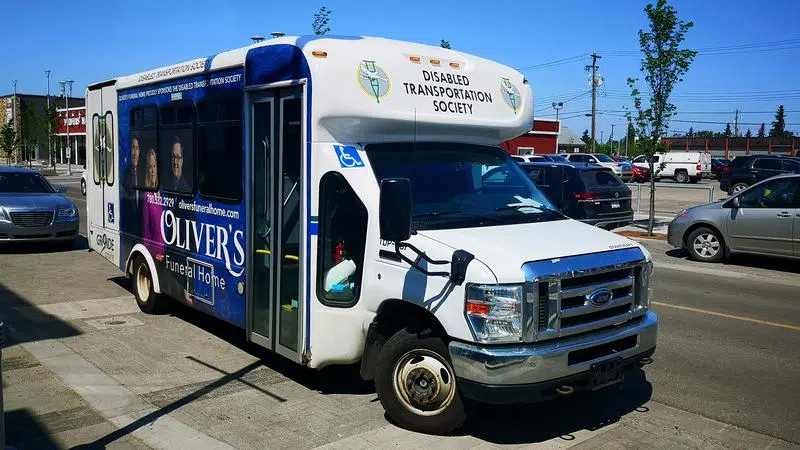
Disabled Transportation Society looking at shuttering services due to current funding levels
The Disabled Transportation Society says a lack of funding and support from the city has forced them to cut back to essential services starting June 1, while possibly having to close their doors for good at the end of June.
The non-profit group announced today that due to current funding levels, service will only be offered to wheelchair clients who require transit for medical, education or employment reasons. All other services will be halted, which includes services to and from events like Stompede, as well as grocery shopping and other activities.
“This is a difficult and upsetting decision that the Board is having to make,” said Board Chair Barry Menard. “The city is refusing to credit the recent restructuring of the service. They appear to have their own agenda, and due to the decrease in funding we can no longer run the service.”
